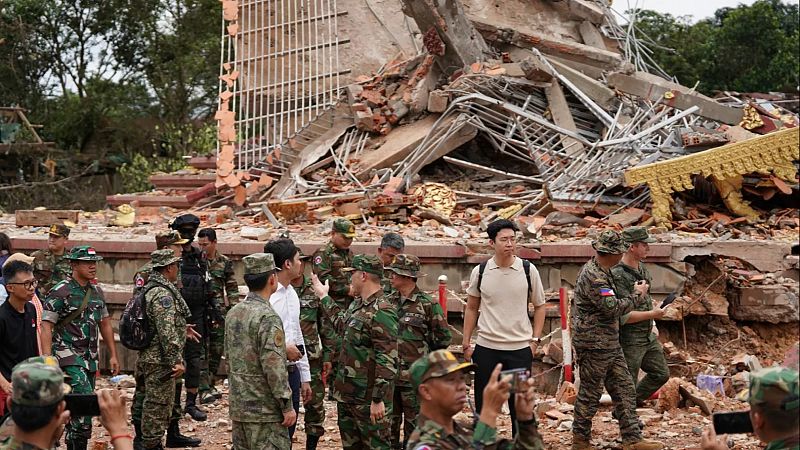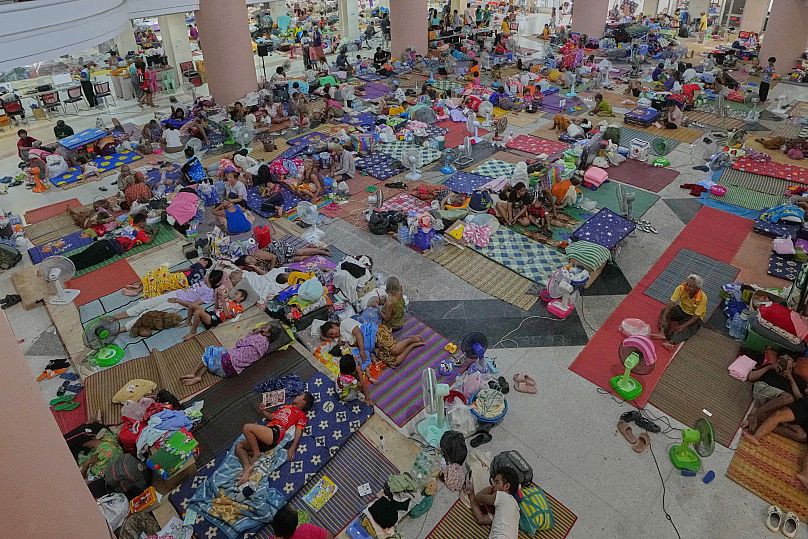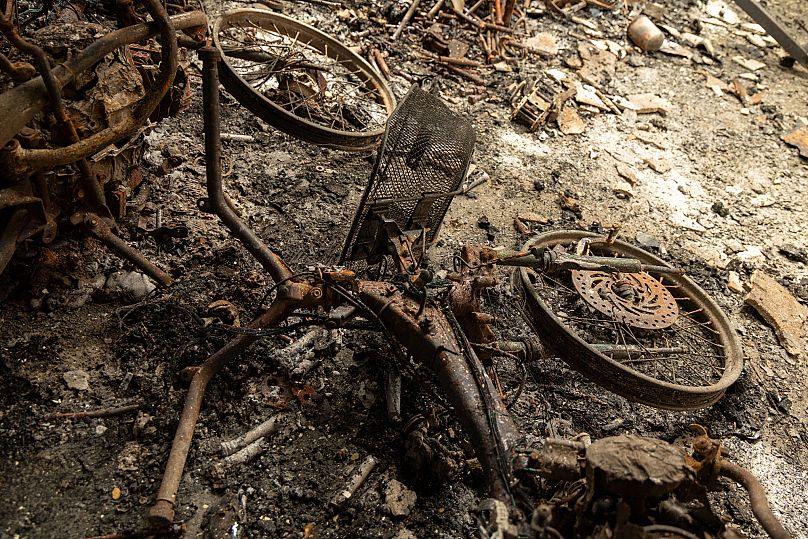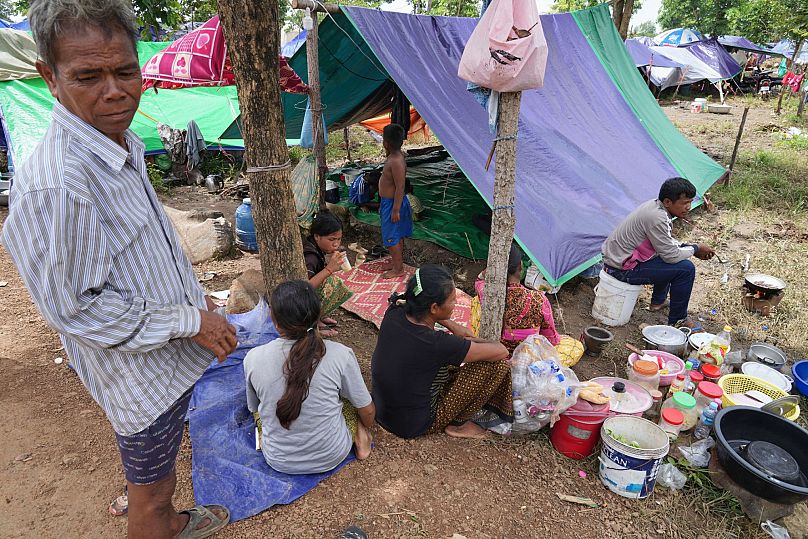Thailand and Cambodia plan border visits for diplomats as fragile ceasefire holds

Thailand and Cambodia separately planned border visits for foreign diplomats to observe damage from the nearly weeklong clashes, as violence that continued after a ceasefire appears to have eased.
The ceasefire reached in Malaysia was supposed to take effect at midnight on Monday, but it was quickly tested as Thailand and Cambodia continued to accuse each other of violating the truce agreements.
Thailand's Ministry of Foreign Affairs said on Thursday it is organising a trip to the border for military attachés of foreign missions and the media on Friday to show the impact of the clashes on the ground.
Cambodia is also organising a border visit for foreign diplomats on the same day.
It held a similar trip on Wednesday attended by representatives from 13 countries, including the US and China.
Thailand's government spokesperson Jirayu Houngsub said on Thursday that there had been no new clashes reported overnight into Thursday.
But tensions on other fronts continue to simmer. Officials in Thailand's border province of Surin, one of the critical locations of the conflict, cautioned evacuees on Thursday against returning home as they were surveying affected areas for any ammunition that might still pose a risk.
A spokesperson for Cambodia’s Defence Ministry Maly Socheata said on Thursday that Cambodia had received the body of one of its soldiers from Thailand.
Cambodian Prime Minister Hun Manet said the military is now in contact with its Thai counterparts to facilitate the return of about 20 other soldiers captured by Thai forces.
"I hope that the Thai Army will return all our soldiers who are currently in the custody of the Thai Army to Cambodia as soon as possible," he said.
Thai foreign minister Maris Sagniampongsa said the Cambodian soldiers were being well taken care of and would be sent back once Thailand is confident they no longer pose a threat.
He said security officials would determine when the return would be.
Hun Manet and Thailand's acting prime minister, Phumtham Wechayachai, agreed on Monday to an "unconditional" halt in the fighting which killed at least 41 people.
The peace talks were hosted by Malaysian Prime Minister Anwar Ibrahim, chair of the Association of Southeast Asian Nations (ASEAN). He called the ceasefire a "vital first step towards de-escalation and the restoration of peace and security."
The ceasefire was brokered with US pressure as President Donald Trump said he would not move forward with trade agreements if the conflict continued.
But both countries continued to blame at each other and Thailand accused Cambodia of launching new attacks on Tuesday and Wednesday after the agreement took effect.
Cambodia's Major General Chan Sopheaktra of Preah Vihear province said on Wednesday that the Cambodian military has been strictly adhering to the ceasefire agreement and that there had been two ceasefire violations by Thai forces since the agreement took effect. He did not elaborate on the violations.
Tensions had been growing since May when a Cambodian soldier was killed in a confrontation that created a diplomatic rift and upended Thailand's domestic politics.
That erupted into cross-border fighting last week after a landmine explosion along the border wounded five Thai soldiers.
Today




